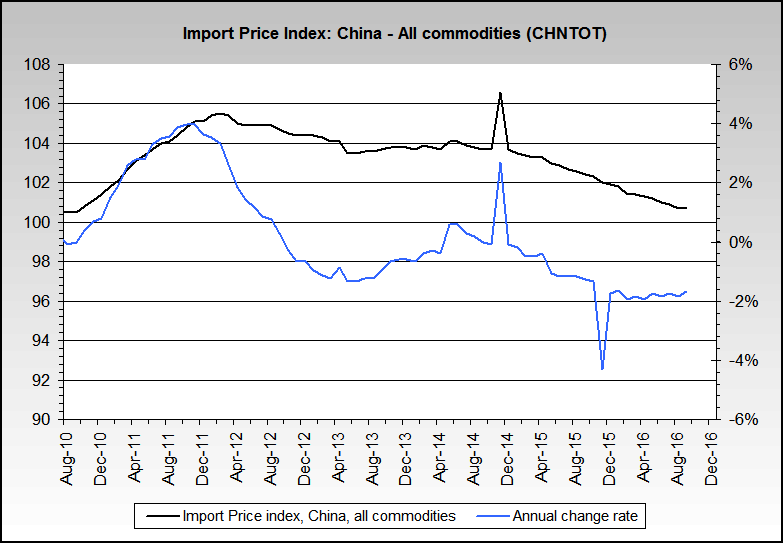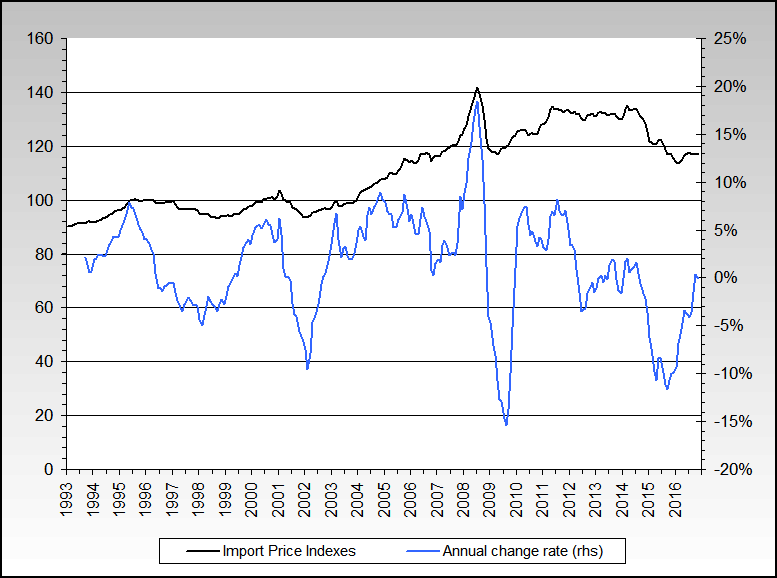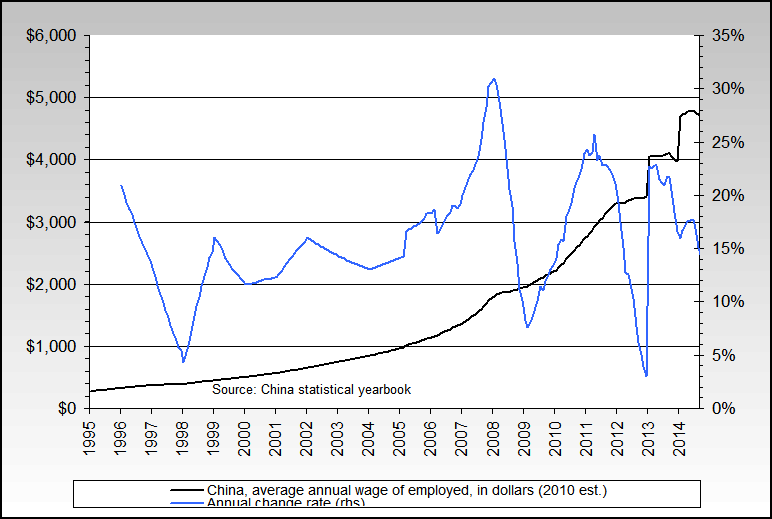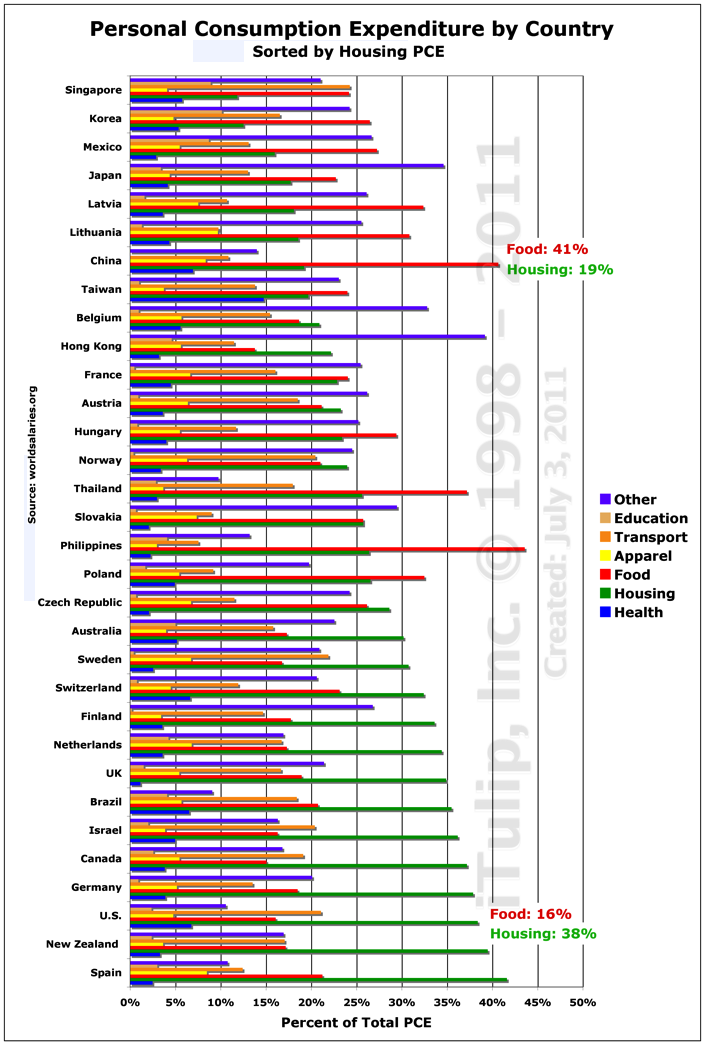Re: Essential Trends - Part II-A: The End of Engineered Stagflation - Eric Janszen
I must say I am still unclear how you can reconcile this belief with having a local pool of money which in turn is somehow immune to this exact same flaw.
Local entities can be as much, if not more, corrupt than national entities.
My own view is that any source of power - which money is - will ultimately be abused. There can be no magical formula for removing the inherent danger of accumulation of power.
And in turn, capital in the modern world cannot be segregated into small enough pools to defuse this danger. There are far too many requirements - both industrial and societal - which require such accumulation.
Thus while I do agree that regulation is not in itself a magical mantra - the Soviet Union was a prime example with its bureaucracy still rampant today - at the same time the free market itself is equally no panacea.
The position we are in today, however, is clearly one in which the regulatory side must gain ascendancy.
Personally my view is that the only stable system is one which is always changing - and thus change, in particular unpredictable change, is the only way to prevent gaming of the system.
I fear you again misinterpret what I've said. I've never ascribed conspiratorial roles to the Rothschilds or whomever. The highly visible role said banking families have played in the history of Europe is, however, well documented.
And my point being, banking as a force in government and society is in no way a new phenomenon.
Given the Bank of England's role (or lack thereof) in the formation of asset bubbles in England, as well as subsequent quantitative easing, I cannot say adding the BoE's imprimature to any proposed reform process is beneficial.
Why is the fact that most large corporations of today, as well as the large corporations of yore, are/were in fact quasi-government agencies at least in some part, not a factor when you cite the historical return rate of corporate dividends?
As for 'true free market' - this is frankly the refuge of insufficient contemplation. Any market no matter how free in the beginning, inevitably loses 'freedom' as the winners in said market seek to preserve or improve their own position.
Thus a 'true free market' is a theoretical construct which we'll never see for any length of time ever.
Raising a barn is a relatively low skill, high labor process, and the results are something which pretty much everyone in a farming community will need at some time.
I've repeatedly asked you how such a cooperative venture as you propose could build a semiconductor wafer fab - the products of which form a key if understated role in modern existence, and the construction of which is anything but low skill.
Your telecom patents in fact would be completely worthless without the baseband chips, the routers, the RF towers, CPUs for processing, and so forth.
Thus while you may not specifically be advocating against larger enterprises, it is still quite unclear to me how you can legislate out the existence of banks - in order to legislate in the community funding - without in turn affecting the capability to form such larger enterprises.
Or let me put this more clearly:
If the local community savings enterprise as you've noted is so powerful, why then do you require the outside assistance of the BoE or any other in order to demonstrate its effectiveness?
I would think even a town of 10,000 should be more than enough to demonstrate the effectiveness of this strategy and institution, and with this success in hand would come the opportunity to repeat in a larger venue?
Originally posted by Chris Coles
Local entities can be as much, if not more, corrupt than national entities.
My own view is that any source of power - which money is - will ultimately be abused. There can be no magical formula for removing the inherent danger of accumulation of power.
And in turn, capital in the modern world cannot be segregated into small enough pools to defuse this danger. There are far too many requirements - both industrial and societal - which require such accumulation.
Thus while I do agree that regulation is not in itself a magical mantra - the Soviet Union was a prime example with its bureaucracy still rampant today - at the same time the free market itself is equally no panacea.
The position we are in today, however, is clearly one in which the regulatory side must gain ascendancy.
Personally my view is that the only stable system is one which is always changing - and thus change, in particular unpredictable change, is the only way to prevent gaming of the system.
Originally posted by Chris Coles
And my point being, banking as a force in government and society is in no way a new phenomenon.
Originally posted by Chris Coles
Originally posted by Chris Coles
As for 'true free market' - this is frankly the refuge of insufficient contemplation. Any market no matter how free in the beginning, inevitably loses 'freedom' as the winners in said market seek to preserve or improve their own position.
Thus a 'true free market' is a theoretical construct which we'll never see for any length of time ever.
Originally posted by Chris Coles
I've repeatedly asked you how such a cooperative venture as you propose could build a semiconductor wafer fab - the products of which form a key if understated role in modern existence, and the construction of which is anything but low skill.
Your telecom patents in fact would be completely worthless without the baseband chips, the routers, the RF towers, CPUs for processing, and so forth.
Thus while you may not specifically be advocating against larger enterprises, it is still quite unclear to me how you can legislate out the existence of banks - in order to legislate in the community funding - without in turn affecting the capability to form such larger enterprises.
Or let me put this more clearly:
If the local community savings enterprise as you've noted is so powerful, why then do you require the outside assistance of the BoE or any other in order to demonstrate its effectiveness?
I would think even a town of 10,000 should be more than enough to demonstrate the effectiveness of this strategy and institution, and with this success in hand would come the opportunity to repeat in a larger venue?





Comment